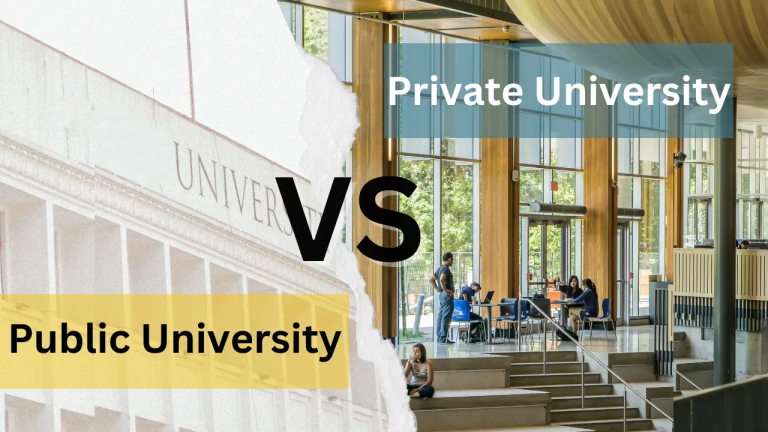Comparing Private vs. Public Colleges and Universities
Choosing the right form of higher education is one of the most significant decisions you’ll make in your educational journey. With countless options available, the decision often boils down to attending a public vs. private college. Each type of higher education offers unique benefits and challenges that can impact your college experience and future career.
Below are some important private vs. public college pros and cons to help you make an informed choice that aligns with your goals and budget.
Private Colleges and Universities
Advantages
-
Smaller class sizes. One of the significant advantages of private universities is their smaller class sizes, which often allow for more personalized attention from professors. This can lead to better academic support and more opportunities for mentorship.
-
Selective admission and prestige. Private universities tend to be more selective in their admissions processes, often leading to a student body with higher academic credentials. This contributes to the institution’s reputation, which can be beneficial for graduates in the job market.
-
Robust alumni networks. Graduates of private universities often benefit from strong and active alumni networks. These can provide valuable connections and resources for career development as well as lifelong engagement with your alma mater.
Disadvantages
-
Higher tuition costs. One of the most significant disadvantages of private universities is their higher tuition fees compared to public institutions. This can lead to substantial student debt. However, private schools often offer higher-value scholarships and financial aid as well. You may also be able to mitigate costs by starting out at a community college and transferring later.
-
Limited diversity. Private universities, due to their higher tuition costs and selective admissions, often lack the diversity found in public institutions. This can result in a less varied student body in terms of socioeconomic, racial, and cultural backgrounds, which can limit your exposure to different worldviews.
Public Colleges and Universities
Advantages
-
Affordable. Public universities are generally more affordable than private institutions, especially for in-state students. They often receive state funding, which helps keep costs down for residents. The lower tuition fees can make higher education accessible to a broader range of students.
-
More diverse student body. Public universities typically have a more diverse student population, providing a rich environment for students to learn from peers with different backgrounds and perspectives. This is important in understanding your own identity, enhancing your cultural awareness, and building your communication and collaboration skills.
-
Wider range of programs. Public universities often offer a broader range of academic programs and majors, giving students more options to explore different fields of study. This can be particularly beneficial for students who are undecided about their career paths or want to change majors without having to transfer to a new school.
Disadvantages
-
Larger class sizes. One of the main drawbacks of public universities is their larger class sizes, which can result in less individualized attention from professors.
-
Less selective admissions. Public universities often have less selective admissions processes, which can lead to a more varied range of academic achievement among students. This may affect overall academic rigor, which is why public institutions are often less prestigious than private ones. However, this won’t be detrimental in most careers.
-
Resource limitations. While public universities benefit from state funding, they may also face budget constraints that limit their resources. This can impact the availability and quality of facilities, research opportunities, and extracurricular activities.
Make Smart College Decisions With On Point for College
On Point for College helps traditional and nontraditional students in the Central New York region overcome the barriers to higher education and careers. We support our students from application through graduation and beyond, empowering them to fulfill their dreams and achieve their potential, which ultimately benefits both individuals and the community.
Our Education Services team provides a range of services designed to help On Point students and graduates find the right college or university for them. Join us to get comprehensive assistance with your college experience, including guidance on how to transfer colleges. Contact us today to learn how!
Ready to become part of On Point for College? Fill out our new student interest form here.

